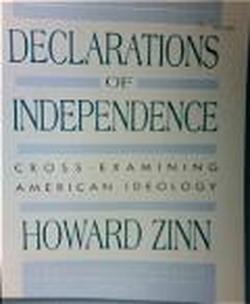The closest we have to a contemporary source on what happened after that first landing is the account of Bartolomeo de las Casas, who as a young priest participated in the conquest of Cuba. In his History of the Indies, las Casas wrote, ” Endless testimonies…prove the mild and pacific temperament of the natives… But our work was to exasperate, ravage, kill, mangle, and destroy….The admiral…was so anxious to please the King that he committed irreparable crimes against the Indians.”
The “admiral” was Columbus. One of the few historians even to mention the atrocities committed by Columbus against the Indians was Samuel Eliot Morison, who wrote the two-volume biography of Columbus, Admiral of the Ocean Sea. In his shorter book, written for a wider audience in 1954, Chistopher Columbus, Mariner, Morison says, “The cruel policy initiated by Columbus and pursued by his successors resulted in complete genocide.” But this statement is on one page, buried in a book that is mostly a glowing tribute to Columbus.
In my book, A People’s History of the United States , I commented on Morison’s quick mention of Columbus’s brutality: Outright lying or quiet omission takes the risk of discovery which, when made, might arouse the reader to rebel against the writer. To state the facts, however, and then to bury them in a mass of other information is to say to the reader with a certain infectious calm: yes, mass murder took place, but it’s not that important—it should weigh very little in our final judgements; it should affect very little what we do in the world.
Is my own emphasis on Columbus’s treatment of the Indians biased? No doubt. I won’t deny or conceal that Columbus had courage and skill, was an extraordinary sailor. But I want to reveal something about him that was omitted from the historical education of most Americans.
My bias is this: I want my readers to think twice about our traditional heroes, to reexamine what we cherish (technical competence) and what we ignore (human consequence). I want them to think about how we easily accept conquest and murder because it furthers “progress.” Mass murder “for a good cause” is one of the sicknesses of our time.

